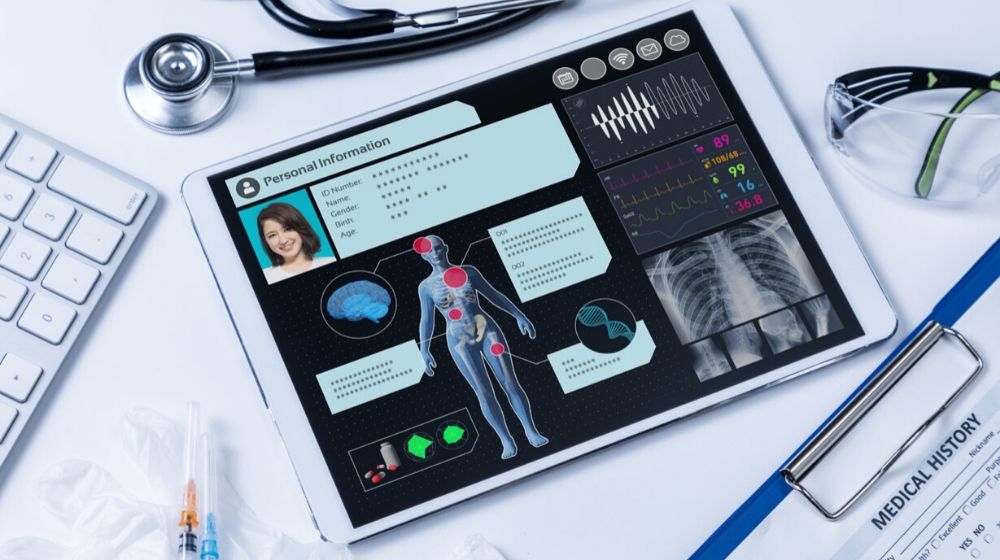Breaking News
Trump Making Electronic Health Records a Reality

Imagine a world where you couldn't access your bank account, other than by going into a branch and filling in huge numbers of paper forms and that every time you went to another branch, you had to fill in another set. Worse yet, what if you couldn't transfer your own money from one bank to another?
This is an unfortunate analogy to the status quo in today's health care system. Patients lack the ability to control their own information and share it with the doctors and hospitals of their choice. For many Americans, collecting and navigating their own health care records is a frustrating, time-consuming burden that leads to lower quality and higher costs. Until now.
From the earliest days of the Trump administration, we recognized the need for a new approach, one that would empower patients with greater control over their own health care and prioritize progress over politics.
Over a decade ago, the move to electronic health records was intended to liberate data from filing cabinets and fax machines to the digital systems of the modern world. Unfortunately, despite the widespread adoption of electronic health care records systems financed with more than $36 billion from American taxpayers in 2009, those systems remain fragmented due to the lack of interoperability for health care information.
Virtually everyone has a personal story about the inconvenience of getting a paper release form to share their medical information between their physicians and hospitals. Unfortunately, for too many Americans, the lack of easy access to and control of their own medical information extends beyond mere inconvenience, leading to unnecessary delays and errors in medical treatment that have dire health consequences. In a crisis, access to one's own medical record can literally be the difference between life and death. No American should struggle to access and share their own health information in life's most vulnerable and uncertain moments.
impact of transitioning from availability of outside records within electronic health records to integration of local and outside records within electronic health records | Journal of the American Medical Informatics Association work by @CliirUcsf https://t.co/ZjAGgoVmZQ
— Julia Adler-Milstein (@j_r_a_m) March 6, 2020
Two years ago, we launched the MyHealthEData initiative to put patients at the center of the health care system, by empowering them with control over their own health care data. In response, we have worked with experts across the country to develop specific reforms and programs to achieve these important goals, including federal use of industry-leading APIs and other technical standards that empower patients with secure access to their Medicare claims data.
The Trump administration is now taking action to ensure that every American has secure access to their own health records. First, the Office of the National Coordinator for Health IT is implementing provisions from the bipartisan 21st Century Cures Act that will lead to transformative reforms in the ways that patients can access and control their own health care information. Patients will be able to use smartphones and modern software apps to securely access and consolidate medical information from different health care providers, and entrepreneurs can develop apps tailored to patients' medical conditions and specific needs. Second, the Centers for Medicare & Medicaid Services are requiring that all health plans doing business in Medicare, Medicaid, CHIP, and Federal exchanges ensure patients have safe and secure access to their health data.
In the best traditions of our country, this effort has unified a diverse array of stakeholders who do not always agree, yet who stand together in strong support of these important reforms. Representative figures from our nation's top health care experts and executives, leading clinicians and researchers developing cures for diseases, startup entrepreneurs looking for the next great innovation, and – most importantly – from patients all across our country who want greater access and control over their own health care have all voiced their support for these important reforms.
Working together, we are unleashing the next generation of health care innovation, resulting in a more intuitive, convenient and secure experience that puts patients in control, leading to more competition, higher quality care and lower health care costs.
Jared Kushner is senior advisor to President Donald J. Trump. Seema Verma is administrator of the Centers for Medicare & Medicaid Services. Dr. Don Rucker is national coordinator for Health Information Technology. This article appeared in USA Today.
